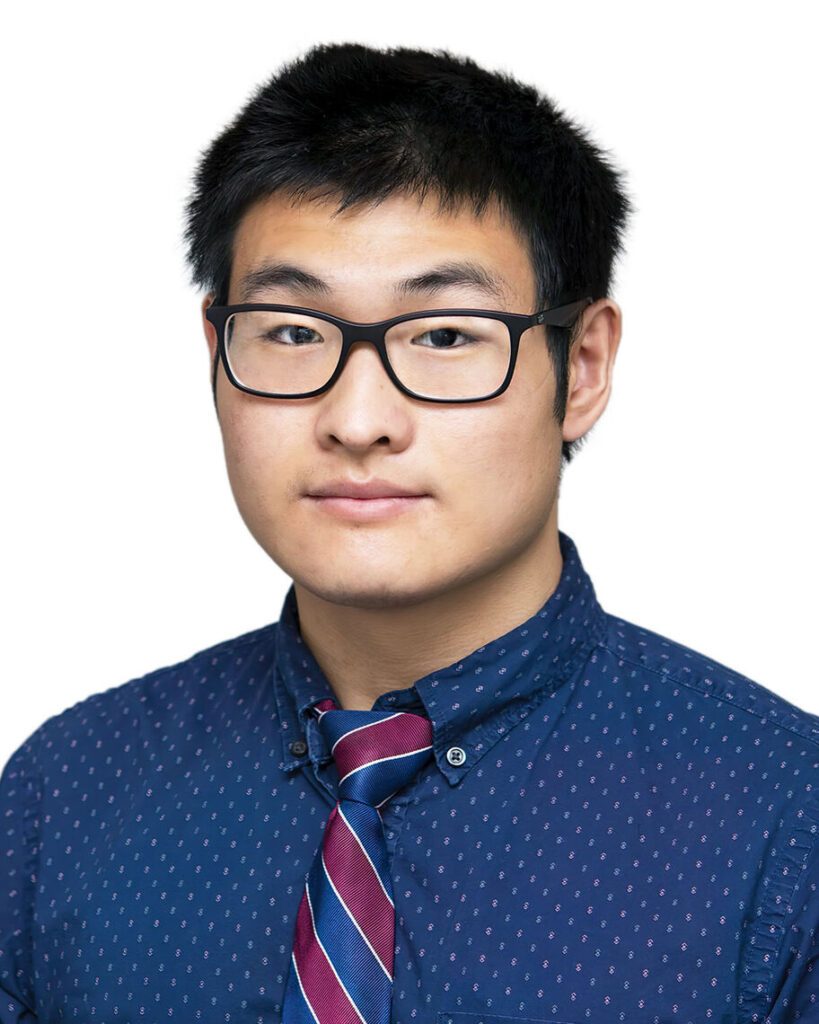- Fellow Highlights
LOOKING BACK AT THE FELLOWSHIP: MD/PhD Student Kingson Lin
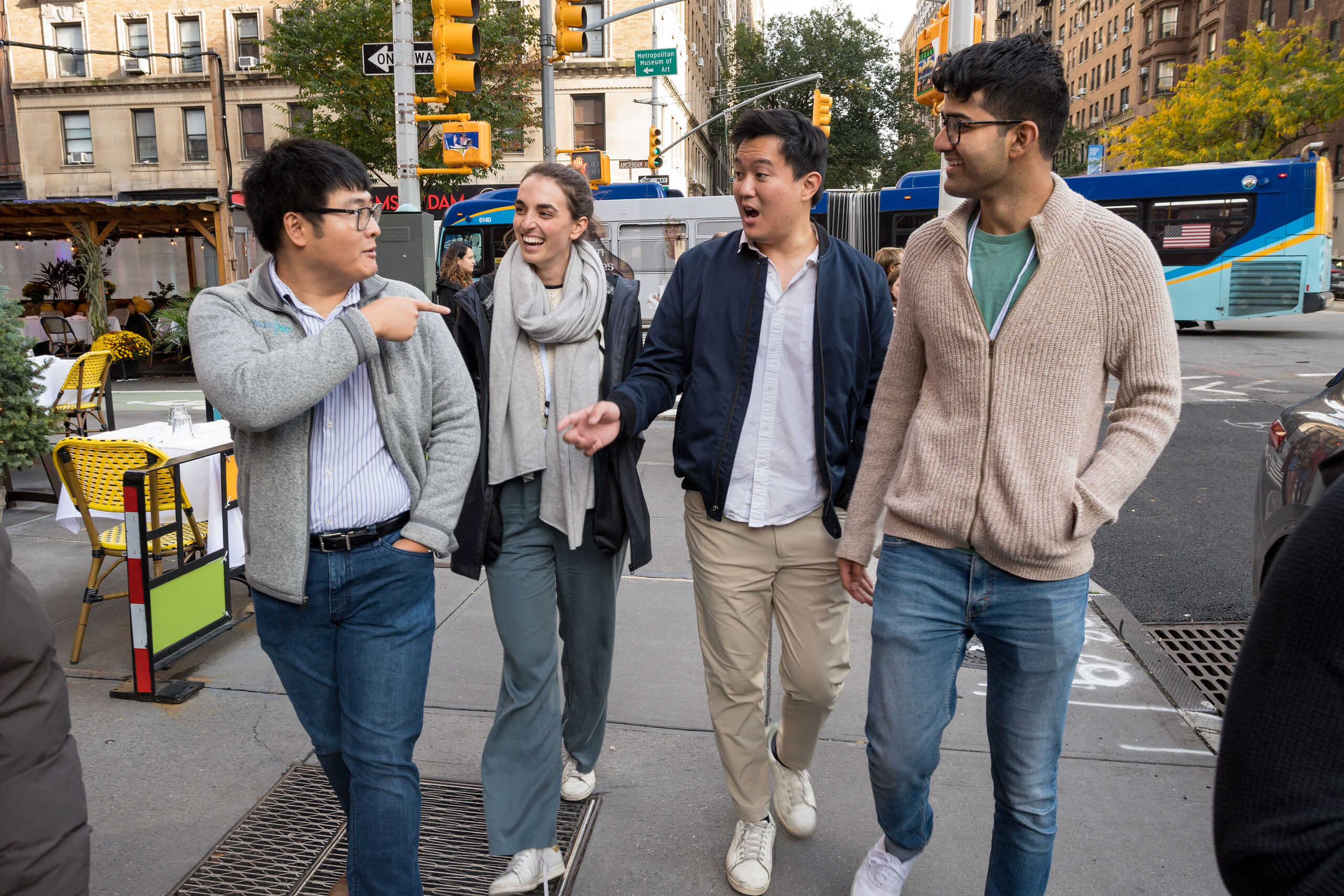
2022 Paul & Daisy Soros Fellow Kingson Lin is a MD/PhD student at Yale University.
Kingson Lin was born in New York City to immigrant parents from the rural fishing providence of Fujian, China.
He attended the University of Pennsylvania as a first-generation, low-income (FGLI) student and participated in the PENNCAP Pre-freshman Program with other incoming Penn students from non-traditional backgrounds. At Penn, Kingson deepened his passion for chemistry and performed pioneering research in the laboratory of Professor Gary Molander on a novel paradigm for organic synthesis utilizing photoredox/nickel dual catalysis to make previously difficult chemical bonds with widespread potential applications ranging from basic science to the pharmaceutical industry. His work has been published in ACS Catalysis and Organic Syntheses.
After graduating summa cum laude, Phi Beta Kappa, and Sigma Xi, Kingson entered the MD/PhD Program at Yale University. Kingson is currently completing his doctoral work under the mentorship of Professors Ranjit Bindra and Seth Herzon.
We caught up with Kingson about what’s next and what the Fellowship has meant to him:
Where are you with your graduate program now? Whether you’re still in school or you’ve graduated, what’s the next step for you or what are the steps you’ve taken after graduating?
During my Fellowship, I pursued a dual degree in the MD-PhD program at Yale. I finished my degree during my last year of Fellowship and have now graduated. I’m really excited to start the next chapter in Boston for my residency training in radiation oncology at Mass General Brigham. I’m particularly happy about this because I also know there is a large PD Soros community in the city and I look forward to seeing how our paths will cross.
Can you tell us more about your graduate studies? What questions were you pursuing? What was the main focus of your studies?
During my graduate studies, the main question I was pursuing was how can we overcome resistance mechanisms to current drugs in a deadly form of brain cancer called glioblastoma multiforme. I approached this question using a combination of synthetic chemistry, and understanding of the DNA damage response pathways. I was able to understand how current drugs killed cancer by damaging the DNA, what changes occurred in the cancer cells that made them resistant, and applied that molecular understanding to design new drugs that could circumvent those changes and still selectively kill cancer cells without hurting healthy normal cells.
There are so many paths beyond college; Why did you feel graduate school was the best next step for you personally and/or professionally? Was it hard to take the risk of going to school or something you always knew you wanted to do? What has it helped you figure out or accomplish?
I think graduate school, specifically an MD-PhD program, was the best step for me personally because I knew I wanted to do research that was translationally relevant to helping patients. Furthermore, I loved learning and really wanted to push myself to the next step from learning new knowledge in college to generating new knowledge in graduate school. It was definitely not an easy choice because I knew it was going to be a long road with many obstacles ahead of me as well as a significant period of time in which I was going be financially stagnant and unable to comfortably achieve of the life milestones my peers were who went straight into the work force could. However, what changed my mind was having close friends in college who were pursuing similar paths and let me know that we would be going through a similar journey together. That comradery really gave me solace and confidence to move forward with my plan. Finding one’s community is probably the single most important thing that can make or break one’s graduate school experience.
Over the past two years, what personal or professional accomplishment are you most proud of?
I was actually asked this question so many times during my interviews for residency and I think without a doubt my proudest personal accomplishment is being a Paul and Daisy Soros Fellow. I can genuinely say that I was never happier to be selected for any other distinction. I’ve already made so many important relationships as a result of this Fellowship and the community I’ve gained and will no doubt make many more in the future. The Fellowship is truly more than simply financial support or a title like many other fellowships. There’s something immeasurable about suddenly becoming part of an amazing community where people, despite coming from all walks of life and backgrounds, share a common understanding and want to support each other.
What advice would you give to someone who is thinking of applying to The Paul & Daisy Soros Fellowships for New Americans?
I would encourage all applicants who meet the criteria to apply. There’s truly no other fellowship like this. Even in the process of applying, you learn so much about yourself and your family. I’d also highly encourage interested applicants to reach out to PD Soros Fellows. In general, I’ve found the members of this community to be genuinely responsive. ∎
Keep Exploring
-
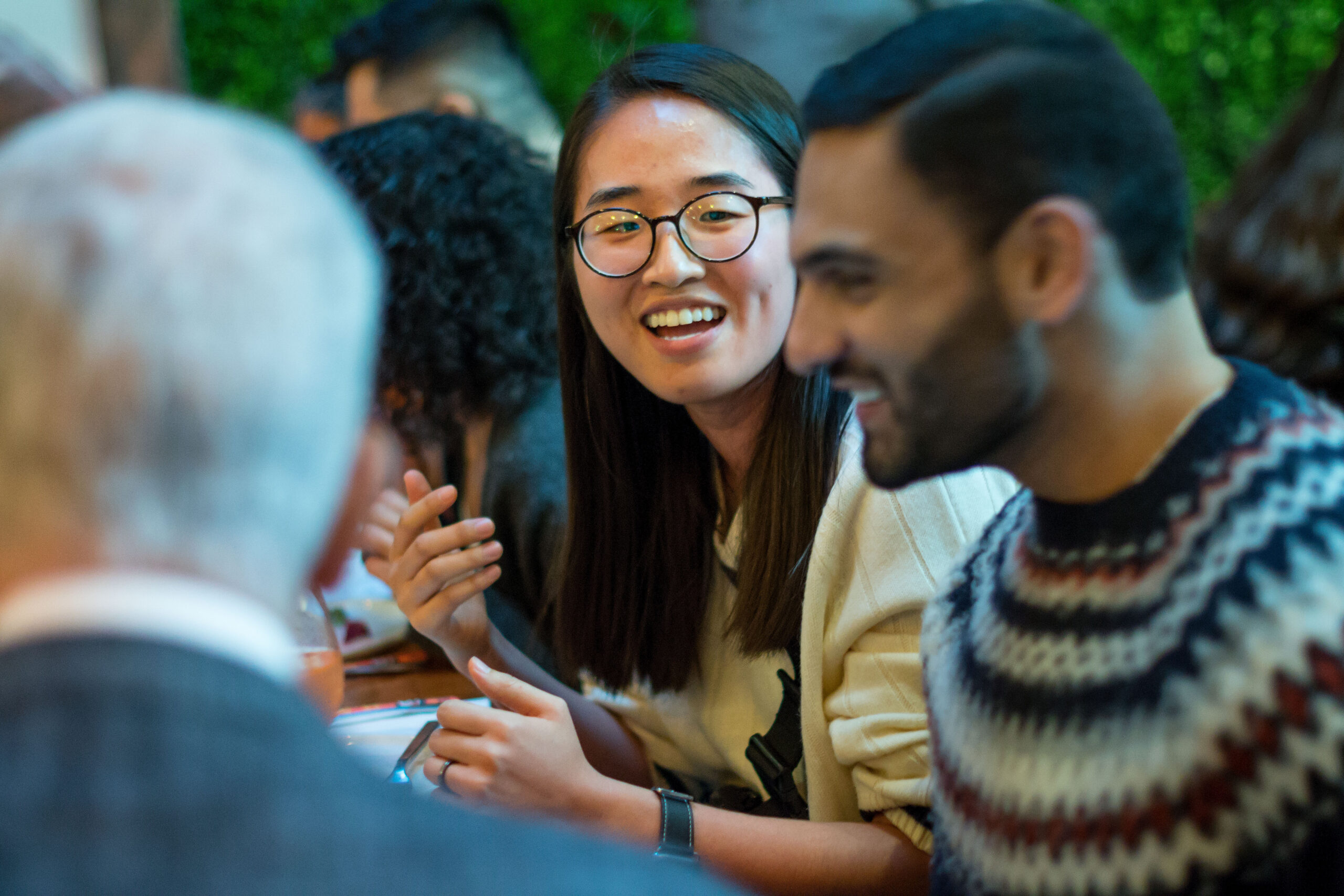 Read more: Kathy Ku Steps into Leadership as PDSFA Chair
Read more: Kathy Ku Steps into Leadership as PDSFA Chair- Board of Directors
- Fellowship News
Kathy Ku Steps into Leadership as PDSFA Chair
-
 Read more: Q&A with MD/PhD Student Silvia Huerta Lopez
Read more: Q&A with MD/PhD Student Silvia Huerta LopezQ&A with MD/PhD Student Silvia Huerta Lopez
-
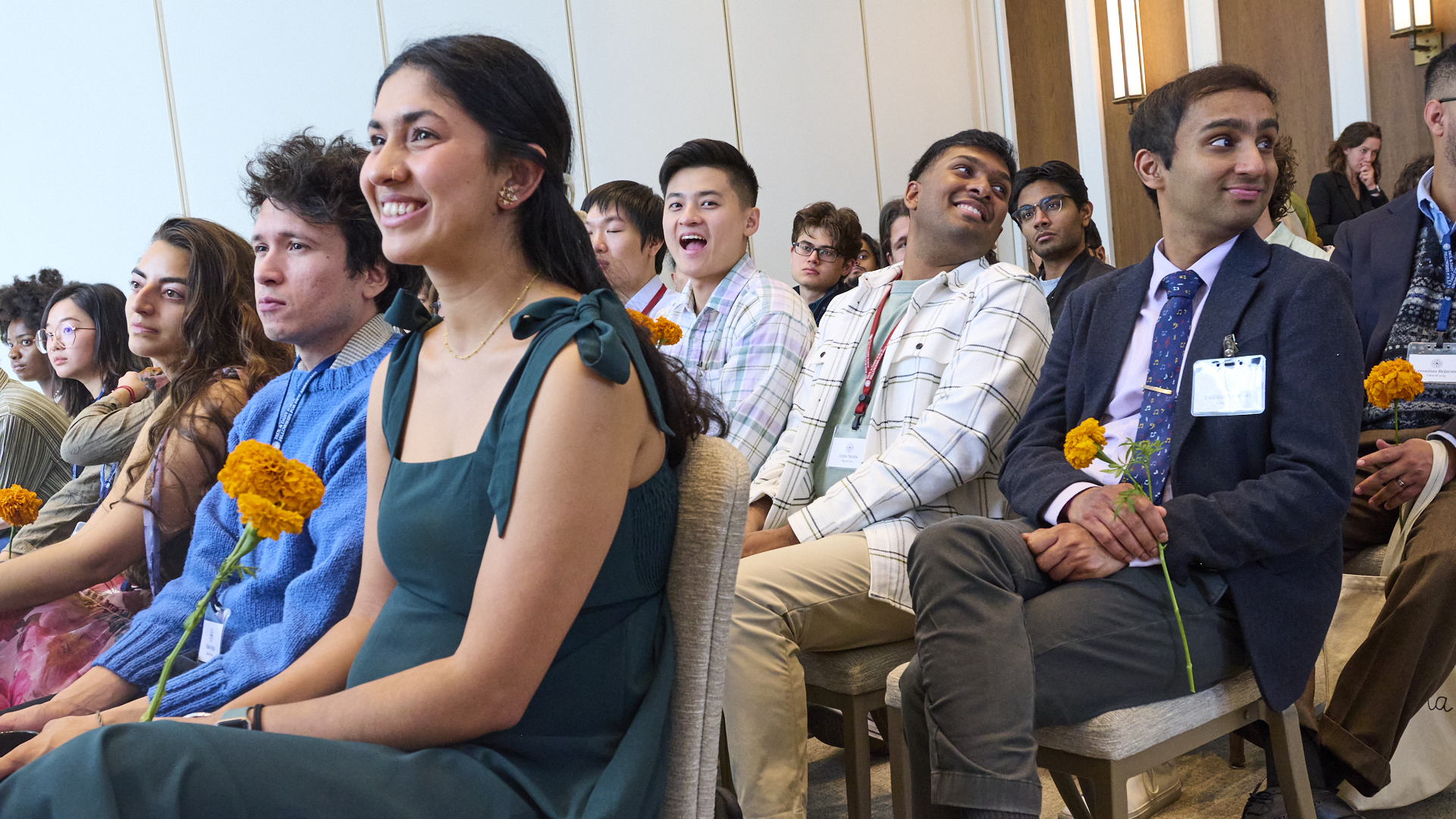 Read more: PD Soros Eligibility Guide for PhD Applicants
Read more: PD Soros Eligibility Guide for PhD Applicants- Applicant Information
PD Soros Eligibility Guide for PhD Applicants
-
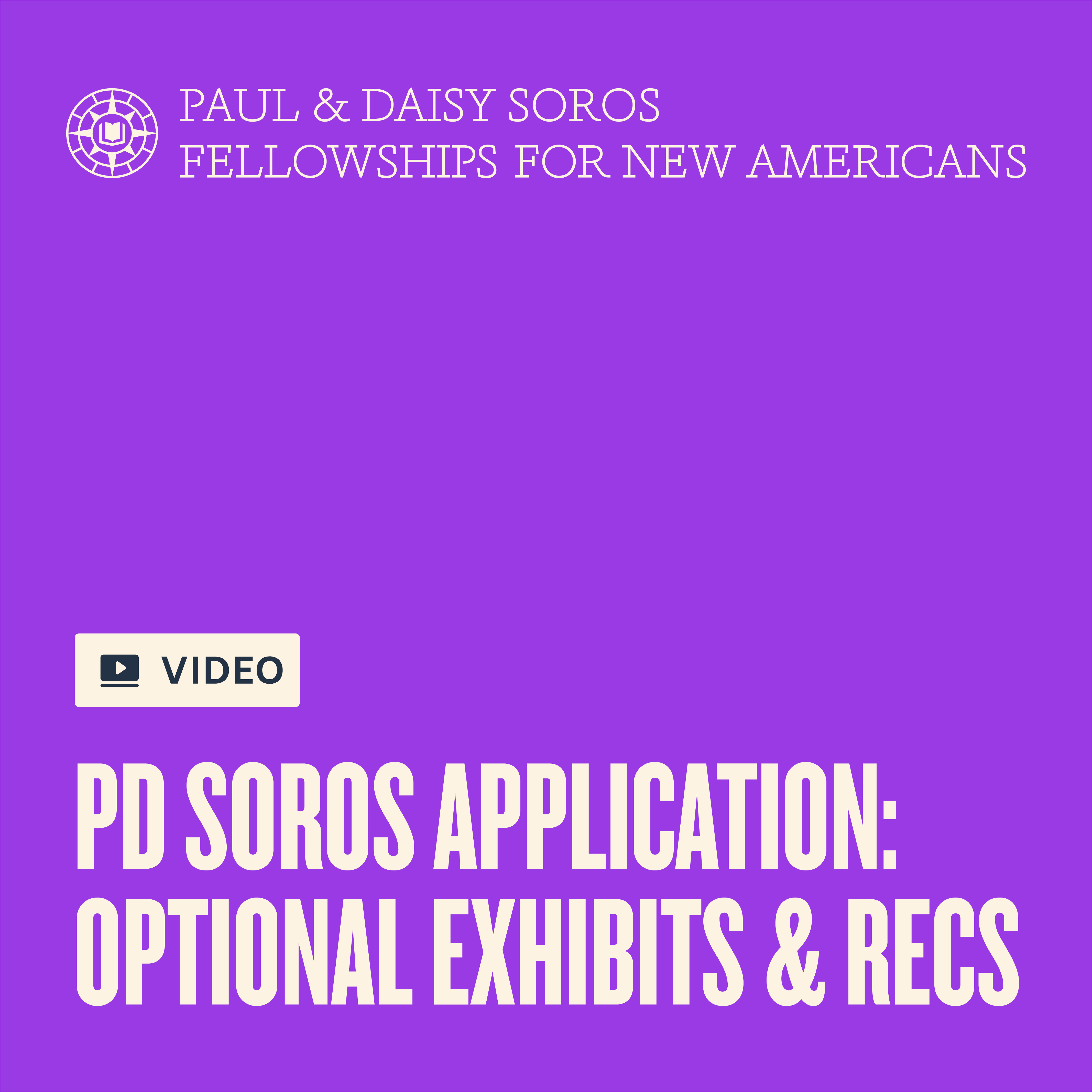 Read more: Watch: Optional Exhibits & Recommendations
Read more: Watch: Optional Exhibits & Recommendations- 2025 Information Sessions
Watch: Optional Exhibits & Recommendations
